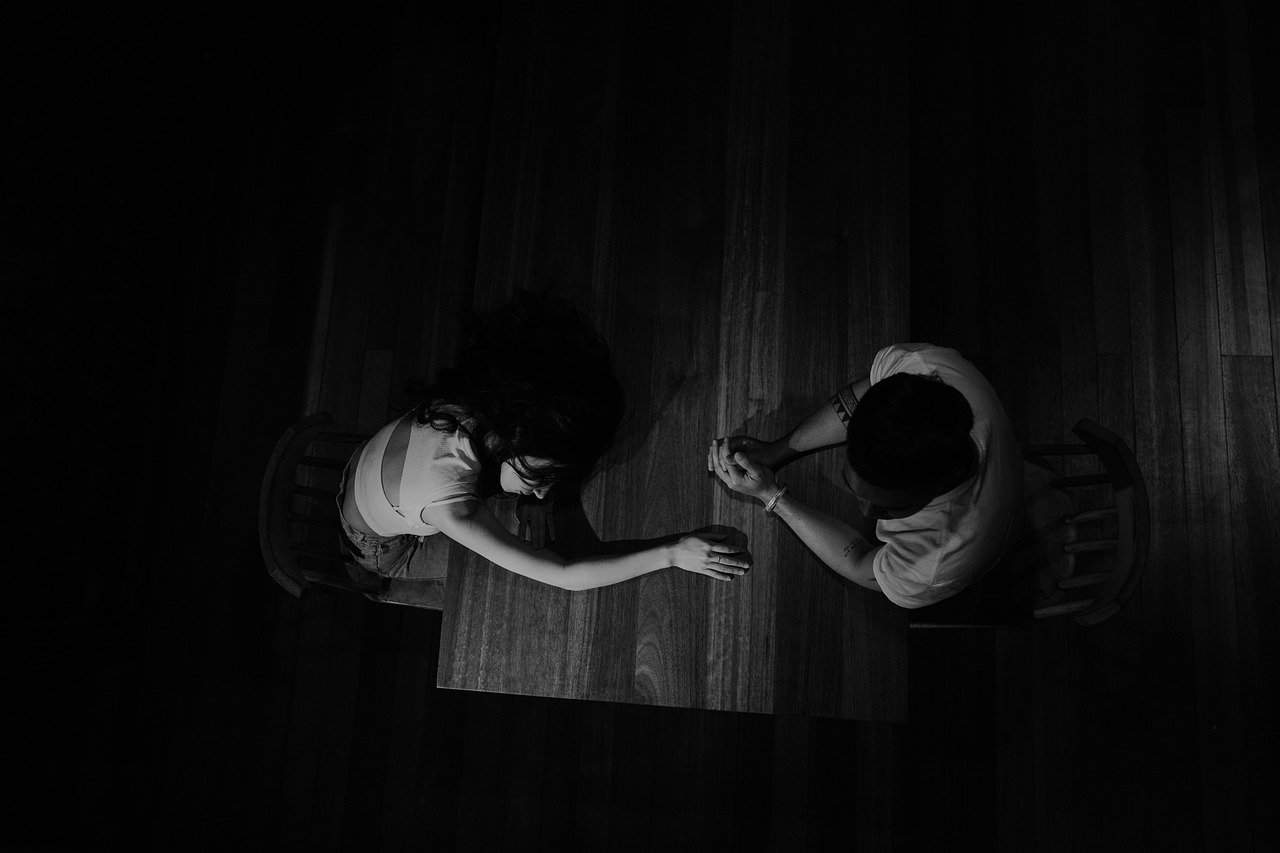“An unhealthy relationship is like a drug addiction – it starts out fun and exciting, but ends up consuming your life and destroying you from the inside out.” —Unknown
You’re an amazing person. You’re smart, independent and hard-working. You have a great personality and sense of humour. You give a lot in your relationships. And you really want a great partner who will give a lot back to you.
So why on earth do you keep attracting unhealthy relationships?
Your last partner was controlling and selfish. The one before that had an addiction. The one before that cheated on you.
You know you’re stuck in a pattern of unhealthy relationships, but you don’t know why.
You keep wondering, “Is there something wrong with me?”
After over a decade of studying unhealthy relationship patterns, I can assure you there is nothing wrong with you. And you are not alone in your struggle to find a good partner. You deserve to find true love!
But you are stuck in a subconscious pattern that was ingrained in your psyche when you were much younger, and reinforced by the failed relationships you’ve had since. It’s like an old-fashioned record player whose needle is stuck in the same worn-out track.
The good news is you can move your love needle. It does not need to remain stuck on repeat, playing the same old dreary love songs. Once you become aware of your pattern, you can choose a happier song for your love story’s soundtrack.
So let’s start by looking at why this is happening…
What causes this pattern
There are several reasons why you might repeatedly find yourself in unhealthy relationships:
1. Unresolved childhood trauma – People who experienced abuse, neglect or instability in their family of origin may struggle to form healthy attachments in their adult relationships (either becoming too clingy or too avoidant). This can make it hard to recognize and avoid unhealthy patterns.
2. Normalization of unhealthy dynamics – If a person grows up witnessing dysfunctional relationship models, they may come to see toxic behaviors as normal or acceptable and subconsciously seek out similar dysfunctional dynamics in their adult relationships. (The unhealthy becomes the familiar.)
3. Low self-esteem – People with poor self-esteem may stay in bad relationships due to feelings of unworthiness or fear of being alone.
4. Codependency – Some people become overly dependent on their partners emotionally and may tolerate mistreatment to maintain the relationship. Codependent behavior can stem from a lack of personal identity and boundaries, as well as an unbalanced life (relying too much on your partner for your happiness).
5. Trauma bonding – The emotional highs and lows in abusive relationships can cause a trauma bond, making it very difficult for a person to leave, even when the relationship is clearly unhealthy.
6. Lack of relationship skills – Some people may simply lack the self-awareness, communication skills, and conflict resolution abilities to cultivate and maintain healthy partnerships.
Breaking the cycle
“The strongest relationships are those where two people come together to build and support a life, not to complete each other.” —Unknown
Addressing the root causes of unhealthy relationship dynamics can help break this cycle over time. But it requires a willingness to confront and change deep-seated patterns, and usually requires professional support.
Here are 5 steps to break the cycle:
1. Reflect on patterns – Spend time honestly examining the common themes and dynamics in your past relationships. What unhealthy patterns do you notice? Identifying these patterns is the first step to breaking the cycle.
2. Recognize red flags early – Learn to spot the early warning signs of toxicity, such as excessive jealousy, gas-lighting, disrespect, and controlling behaviors. Don’t ignore these red flags, no matter how charming the person may seem.
3. Prioritize personal development – Get professional support to learn how to build your self-esteem, independence, and ability to set and enforce boundaries. Coaching can be enormously helpful for building these skills. The healthier and more secure you become, the less likely you’ll be to tolerate mistreatment.
4. Slow down the pace – When starting a new relationship, intentionally take things slow. Don’t rush into physical intimacy or emotional commitment before you’ve had time to thoroughly vet the person’s character and intentions.
5. Be willing to walk away – If you find yourself in a relationship that becomes abusive or persistently unhealthy, have the courage to end it, even if it’s difficult. Your wellbeing must come first!
The key to breaking the cycle of unhealthy relationships is to learn how to recognize and avoid unhealthy dynamics going forward. To help with this, I invite you to my free training Lemons to Lemonade: Turn your pain into power. In that training, I’ll be sharing the 7 most common unhealthy relationship patterns.
Many amazing people go through a series of unfulfilling relationships before finding true love. It’s not you…it’s a pattern. A pattern you can learn to understand and step out of.
You deserve a great partner. And I truly believe you can find one. Don’t give up!
xo Karen
P.S. Check out the free training below if you need more help!
Resources
You may also be interested in:
Here are some free trainings you may find helpful in better understanding your patterns:
- Empaths & Narcissists: Why loving women attract toxic partners
- Loving without Losing: How to attract the love of your life without losing yourself again
Share your ideas
What has been your experience with unhealthy relationships? Please share…



0 Comments